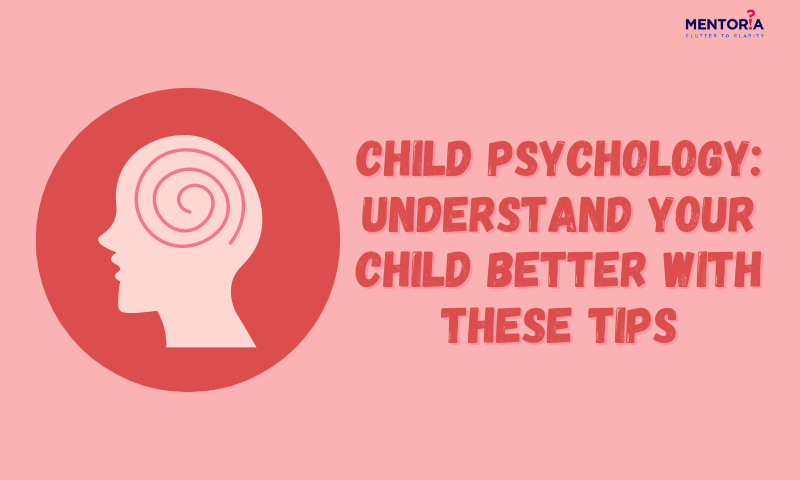Child Psychology: Understand Your Child Better With These Tips

Hey there parents and guardians! Are you tired of feeling like you don’t quite understand your child’s behaviour or emotions? Well, you’re not alone! Understanding child psychology can be a tricky business, but fear not, because I’m here to help you navigate this complex world.
In this blog, we’ll explore some top tips to help you understand your child’s behaviour, emotions, and needs. From communication strategies to emotional regulation techniques, we’ll cover it all.
So, grab a cup of coffee, sit back, and let’s dive into the fascinating world of child psychology. With these tips, you’ll be well on your way to building stronger, healthier relationships with the little ones in your life. Let’s get started!
Communication is Key
You know how sometimes you feel like you’re speaking a different language than your child? Well, that’s where communication comes in! It’s important to encourage open and honest communication with your child from a young age. This means listening actively, asking questions, and showing interest in what they have to say.
But it’s not just about talking, it’s also about listening. Pay attention to your child’s body language and tone of voice, and try to read between the lines to understand what they might not be saying out loud.
And don’t forget to model good communication skills yourself! This means speaking kindly, using active listening skills, and showing empathy and understanding towards your child. With good communication skills, you’ll be well on your way to understanding your child better and building stronger relationships.
Be Patient and Understanding
It’s time to channel your inner zen master! When it comes to understanding your child’s behaviour and emotions, patience and understanding are key. Children are still developing their social and emotional skills, so it’s important to be patient with their growth and progress. Instead of reacting to negative behaviour, take a step back and try to understand where they’re coming from.
Remember, every child is unique and will have their own challenges and strengths. Try to view their behaviour as a learning opportunity rather than a problem to be solved.
And most importantly, be kind and understanding with yourself! Parenting is hard work, and it’s okay to make mistakes along the way. Just keep showing up with love, patience, and understanding, and you’ll be doing a great job!
Set Boundaries and Expectations
Setting boundaries and expectations for your child’s behaviour is an essential part of parenting. It helps children understand what’s expected of them, and provides them with a sense of structure and routine. But remember, it’s important to establish clear and consistent boundaries that are age-appropriate and realistic for your child. And once you’ve set those boundaries, it’s crucial to follow through with consequences when necessary.
Consistency is key, so try to avoid making empty threats or giving in to your child’s demands. Instead, use positive reinforcement to encourage good behaviour, and make sure to praise and reward your child when they meet your expectations.
By setting boundaries and expectations, you’ll be helping your child develop important skills like self-control, responsibility, and respect for others. So, keep up the good work, and remember to stay firm but fair!
Encourage Independence
Are you tired of feeling like you’re constantly making decisions for your child? Well, it’s time to encourage some independence! Let your child make some choices for themselves, such as what to wear or what activities to do. Give them opportunities to learn and grow on their own, and don’t be afraid to let them make mistakes along the way.
And remember, independence doesn’t mean letting your child run wild and free without any rules or boundaries. Establish clear expectations for their behaviour and consequences for when those expectations aren’t met.
Encouraging independence can help your child build confidence, learn responsibility, and develop a sense of autonomy. So, let’s all take a step back and give our little ones some space to spread their wings!
Practice Empathy
Empathy is an important skill to have when it comes to understanding your child’s emotions and behaviours. But how do you practise empathy?
One way is to try to put yourself in your child’s shoes. Imagine how they might be feeling in a given situation and respond with understanding and kindness. Another way is to validate their emotions by saying things like, “I can see why you’re feeling upset.” This helps your child feel heard and understood, which can improve your relationship and help them regulate their emotions.
Remember, practising empathy is a powerful tool for building strong, healthy relationships with your child. So, the next time your child is upset, try putting yourself in their shoes and see how it changes your perspective.
Use Positive Reinforcement
Positive reinforcement is a powerful tool in shaping your child’s behaviour and building their self-esteem. So, how can you effectively use positive reinforcement in your parenting?
First, make sure to praise your child for specific positive behaviours, such as sharing or completing a task. Use specific and sincere language, such as “Great job on cleaning up your toys!”
Next, try using small rewards, such as stickers or extra screen time, to reinforce positive behaviours. Be consistent and make sure your child understands what behaviour is being rewarded.
Finally, avoid using rewards as a form of bribery, and instead focus on reinforcing positive behaviours as a way to build your child’s confidence and sense of accomplishment. So, keep on using positive reinforcement, and watch your child thrive and grow!
Teach Emotional Regulation
Parenting can be a rollercoaster ride, and it’s essential to equip yourself with tools to understand your child better. One tip is to teach emotional regulation, which can be a game-changer.
By helping your child identify their emotions and giving them strategies to manage them, you’re setting them up for success in navigating life’s ups and downs.
One way to do this is by modelling healthy emotional expressions yourself. Encourage your child to communicate their feelings in a safe and non-judgmental environment. Practice breathing exercises, mindfulness, and other calming techniques together.
By teaching emotional regulation, you’re not only helping your child to understand themselves better, but also building a stronger bond with them. Remember, emotional regulation is a journey, so be patient and enjoy the ride!
Get Help From Mentoria!
Want to understand your child better? Attend our master workshops! Feel free to call us to speak to our mentors and choose the right guidance plan that suits your needs.
Mentoria’s guidance programme enables you to choose your perfect fit from 3 streams, 850+ courses, and discover what will bring out the best in you. Sign up today and take the Mentoria assessment to get started!








